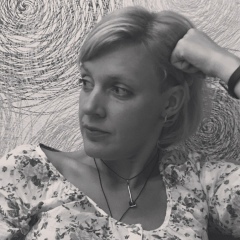Видеозаписи всех лекций первого сезона "Либертарианского Университета" - Либертарианская партия России
0. Куратор программы Юрий Кузнецов сделал запись вступительного слова, в котором призвал сторонников либертарианской идеологии углублять свои знания предмета, чтобы быть убедительнее в общении с интересующимися и в спорах с идеологическими оппонентами.
1. Ярослав Романчук рассказал об истории либерализма и либертарианства, основных постулатах либертарианства и о том, насколько разное значение люди вкладывают в слово “свобода” на примере социологического опроса, проведенного в Белоруссии.
2. Валерий Кизилов рассказал о теории возникновения государства, причинах возникновения монополии государства на насилие и о том, как на протяжении истории менялось значение и функции государств в мире.
3. Павел Усанов объяснил в чем заключается подход Австрийской школы экономики, расказал о теории праксиологии Людвига фон Мизеса и об экономике свободного рынка.
4. Александр Раквиашвили провел лекцию о либератарианских реформах, рассказал о сложностях, которые стоят на пути реформаторов - комплексном характере либертарианских решений и возможном откате проведенных реформ. Лектор также объяснил, что для преодоления этих сложностей нужно внимательно следить за политикой, чувствовать момент и настроения граждан и действовать в подходящее время.
5. Никита Бешта рассказал о либертарианском, или, как он сразу объяснил - научном подходе к пониманию права, объяснил на чем основан запрет на агрессивное насилие с правовой точки зрения, а в секции ответов на вопросы разобрал сложные кейсы, на примере которых объяснил либертарианский подход.
6. Вера Кичанова рассказала о либертарианских и близких к ним организациях, существующих во всем мире. Особенно она выделила возможности для россиян учиться и стажироваться в либертарианских организациях и институах за рубежом, а также сформированный при активном участии Либертарианской партии России мировой Альянс либертарианских партий.
7.Максим Тюленин провел целых две лекции в этом сезоне. В первой своей лекции он попытался объяснить миропонимание социалистов, выделил несоответствия в их логике и на основании этого привел примеры, как можно разбивать критику либертарианства слева
8. Во второй лекции Максим подробно остановился на том, из какой логики исходили составители программы ЛПР, в чем ключевые моменты программы и зачем нужно деление программы реформ на краткосрочные и долгосрочные.
0. Куратор программы Юрий Кузнецов сделал запись вступительного слова, в котором призвал сторонников либертарианской идеологии углублять свои знания предмета, чтобы быть убедительнее в общении с интересующимися и в спорах с идеологическими оппонентами.
1. Ярослав Романчук рассказал об истории либерализма и либертарианства, основных постулатах либертарианства и о том, насколько разное значение люди вкладывают в слово “свобода” на примере социологического опроса, проведенного в Белоруссии.
2. Валерий Кизилов рассказал о теории возникновения государства, причинах возникновения монополии государства на насилие и о том, как на протяжении истории менялось значение и функции государств в мире.
3. Павел Усанов объяснил в чем заключается подход Австрийской школы экономики, расказал о теории праксиологии Людвига фон Мизеса и об экономике свободного рынка.
4. Александр Раквиашвили провел лекцию о либератарианских реформах, рассказал о сложностях, которые стоят на пути реформаторов - комплексном характере либертарианских решений и возможном откате проведенных реформ. Лектор также объяснил, что для преодоления этих сложностей нужно внимательно следить за политикой, чувствовать момент и настроения граждан и действовать в подходящее время.
5. Никита Бешта рассказал о либертарианском, или, как он сразу объяснил - научном подходе к пониманию права, объяснил на чем основан запрет на агрессивное насилие с правовой точки зрения, а в секции ответов на вопросы разобрал сложные кейсы, на примере которых объяснил либертарианский подход.
6. Вера Кичанова рассказала о либертарианских и близких к ним организациях, существующих во всем мире. Особенно она выделила возможности для россиян учиться и стажироваться в либертарианских организациях и институах за рубежом, а также сформированный при активном участии Либертарианской партии России мировой Альянс либертарианских партий.
7.Максим Тюленин провел целых две лекции в этом сезоне. В первой своей лекции он попытался объяснить миропонимание социалистов, выделил несоответствия в их логике и на основании этого привел примеры, как можно разбивать критику либертарианства слева
8. Во второй лекции Максим подробно остановился на том, из какой логики исходили составители программы ЛПР, в чем ключевые моменты программы и зачем нужно деление программы реформ на краткосрочные и долгосрочные.
Videos of all lectures of the first season of Libertarian University - Libertarian Party of Russia
0. The curator of the program, Yuri Kuznetsov, recorded the opening remarks, in which he called on supporters of libertarian ideology to deepen their knowledge of the subject in order to be more convincing in communicating with those interested and in disputes with ideological opponents.
1. Yaroslav Romanchuk talked about the history of liberalism and libertarianism, the basic tenets of libertarianism, and how different meanings people put into the word “freedom” on the example of a sociological survey conducted in Belarus.
2. Valery Kizilov spoke about the theory of the emergence of the state, the reasons for the emergence of the monopoly of the state on violence and how the significance and functions of states in the world have changed over the course of history.
3. Pavel Usanov explained what the approach of the Austrian school of economics is, talked about the theory of praxiology of Ludwig von Mises and about the economy of the free market.
4. Alexander Rakviashvili gave a lecture on liberal reforms, talked about the difficulties that stand in the way of reformers - the complex nature of libertarian decisions and the possible rollback of reforms. The lecturer also explained that in order to overcome these difficulties, you need to carefully monitor politics, feel the moment and mood of citizens and act at the right time.
5. Nikita Beshta spoke about the libertarian, or, as he immediately explained, a scientific approach to understanding law, explained what the prohibition of aggressive violence is based on from a legal point of view, and analyzed complex cases in the section for answering questions, for which he explained the libertarian approach .
6. Vera Kichanova spoke about libertarian and related organizations that exist around the world. She especially highlighted the opportunities for Russians to study and internships in libertarian organizations and institutions abroad, as well as the world Alliance of libertarian parties formed with the active participation of the Libertarian Party of Russia.
7.Maxim Tyulenin has given two lectures this season. In his first lecture, he tried to explain the social understanding of the socialists, highlighted inconsistencies in their logic, and on the basis of this he gave examples of how to criticize left libertarianism
8. In the second lecture, Maxim dwelt in detail on what logic the decision-makers of the DM decision proceeded from, what are the key points of the program, and why it is necessary to divide the reform program into short-term and long-term ones.
0. The curator of the program, Yuri Kuznetsov, recorded the opening remarks, in which he called on supporters of libertarian ideology to deepen their knowledge of the subject in order to be more convincing in communicating with those interested and in disputes with ideological opponents.
1. Yaroslav Romanchuk talked about the history of liberalism and libertarianism, the basic tenets of libertarianism, and how different meanings people put into the word “freedom” on the example of a sociological survey conducted in Belarus.
2. Valery Kizilov spoke about the theory of the emergence of the state, the reasons for the emergence of the monopoly of the state on violence and how the significance and functions of states in the world have changed over the course of history.
3. Pavel Usanov explained what the approach of the Austrian school of economics is, talked about the theory of praxiology of Ludwig von Mises and about the economy of the free market.
4. Alexander Rakviashvili gave a lecture on liberal reforms, talked about the difficulties that stand in the way of reformers - the complex nature of libertarian decisions and the possible rollback of reforms. The lecturer also explained that in order to overcome these difficulties, you need to carefully monitor politics, feel the moment and mood of citizens and act at the right time.
5. Nikita Beshta spoke about the libertarian, or, as he immediately explained, a scientific approach to understanding law, explained what the prohibition of aggressive violence is based on from a legal point of view, and analyzed complex cases in the section for answering questions, for which he explained the libertarian approach .
6. Vera Kichanova spoke about libertarian and related organizations that exist around the world. She especially highlighted the opportunities for Russians to study and internships in libertarian organizations and institutions abroad, as well as the world Alliance of libertarian parties formed with the active participation of the Libertarian Party of Russia.
7.Maxim Tyulenin has given two lectures this season. In his first lecture, he tried to explain the social understanding of the socialists, highlighted inconsistencies in their logic, and on the basis of this he gave examples of how to criticize left libertarianism
8. In the second lecture, Maxim dwelt in detail on what logic the decision-makers of the DM decision proceeded from, what are the key points of the program, and why it is necessary to divide the reform program into short-term and long-term ones.
У записи 8 лайков,
5 репостов.
5 репостов.
Эту запись оставил(а) на своей стене Юрий Полозов




























